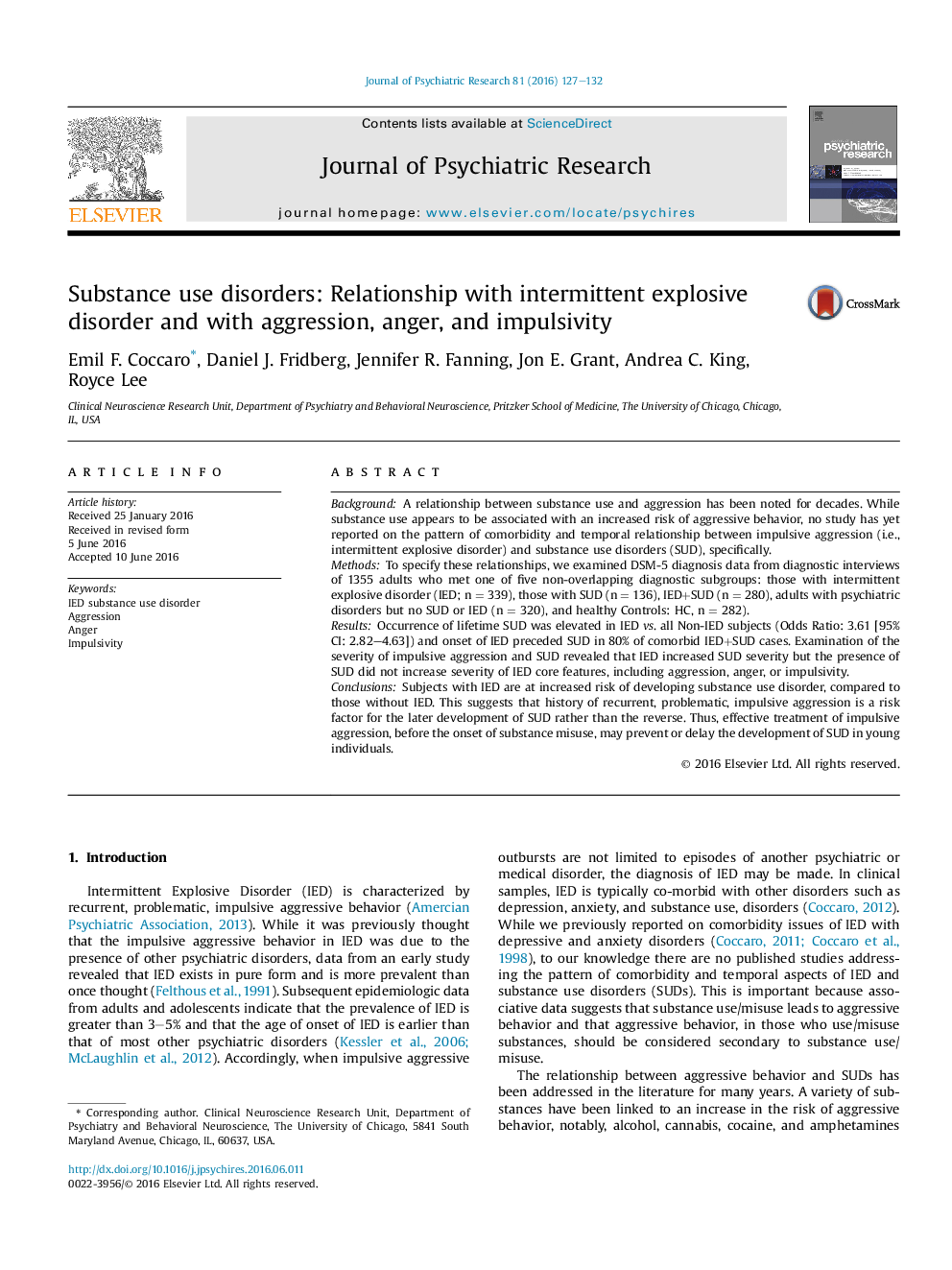| کد مقاله | کد نشریه | سال انتشار | مقاله انگلیسی | نسخه تمام متن |
|---|---|---|---|---|
| 326414 | 542411 | 2016 | 6 صفحه PDF | دانلود رایگان |
• Lifetime SUD was elevated in IED vs. all Non-IED subjects and onset of IED preceded SUD in 80% of comorbid IED+SUD cases.
• Presence of IED increases SUD severity but presence of SUD does not increase severity of IED.
• IED is a risk factor for the later development of SUD rather than the reverse.
BackgroundA relationship between substance use and aggression has been noted for decades. While substance use appears to be associated with an increased risk of aggressive behavior, no study has yet reported on the pattern of comorbidity and temporal relationship between impulsive aggression (i.e., intermittent explosive disorder) and substance use disorders (SUD), specifically.MethodsTo specify these relationships, we examined DSM-5 diagnosis data from diagnostic interviews of 1355 adults who met one of five non-overlapping diagnostic subgroups: those with intermittent explosive disorder (IED; n = 339), those with SUD (n = 136), IED+SUD (n = 280), adults with psychiatric disorders but no SUD or IED (n = 320), and healthy Controls: HC, n = 282).ResultsOccurrence of lifetime SUD was elevated in IED vs. all Non-IED subjects (Odds Ratio: 3.61 [95% CI: 2.82–4.63]) and onset of IED preceded SUD in 80% of comorbid IED+SUD cases. Examination of the severity of impulsive aggression and SUD revealed that IED increased SUD severity but the presence of SUD did not increase severity of IED core features, including aggression, anger, or impulsivity.ConclusionsSubjects with IED are at increased risk of developing substance use disorder, compared to those without IED. This suggests that history of recurrent, problematic, impulsive aggression is a risk factor for the later development of SUD rather than the reverse. Thus, effective treatment of impulsive aggression, before the onset of substance misuse, may prevent or delay the development of SUD in young individuals.
Journal: Journal of Psychiatric Research - Volume 81, October 2016, Pages 127–132
